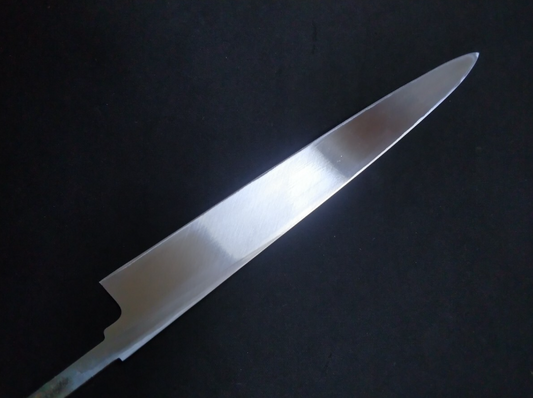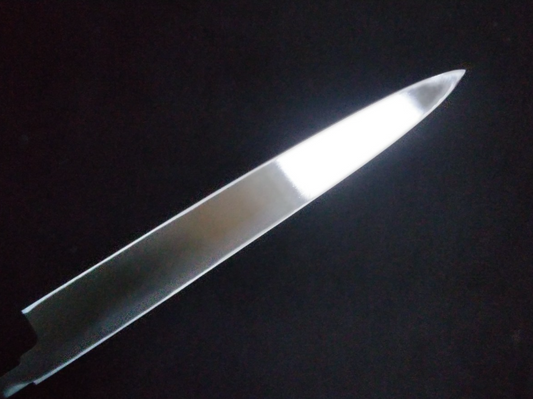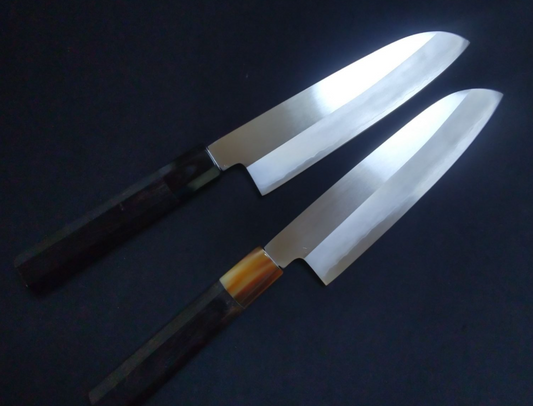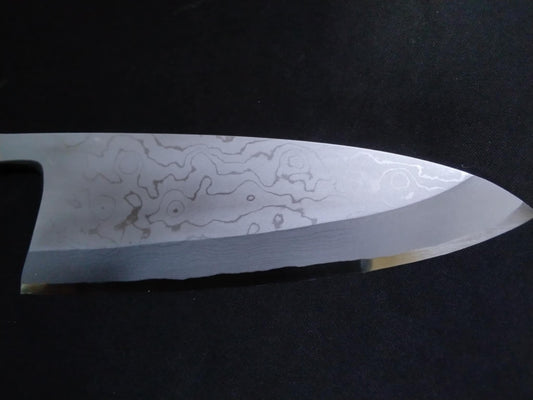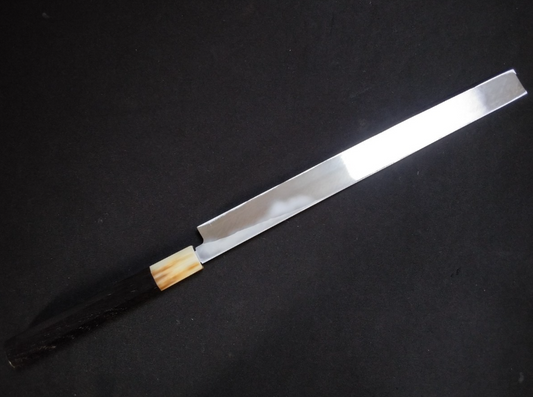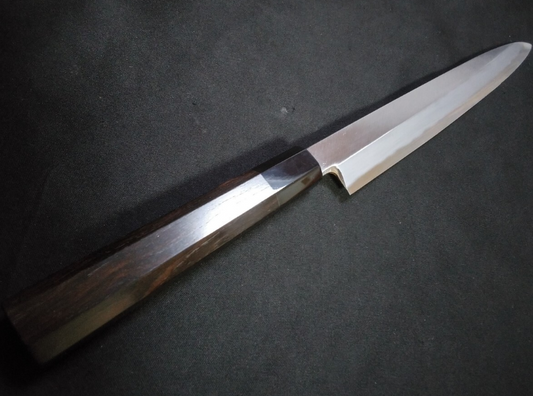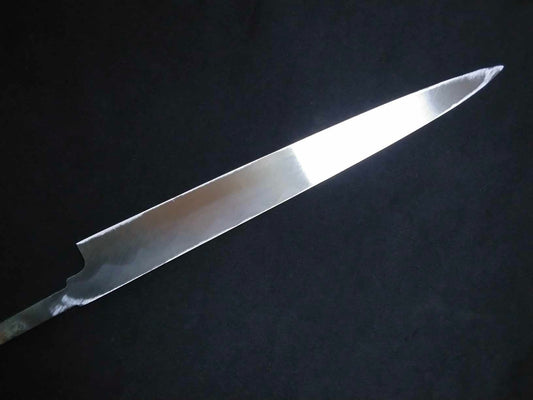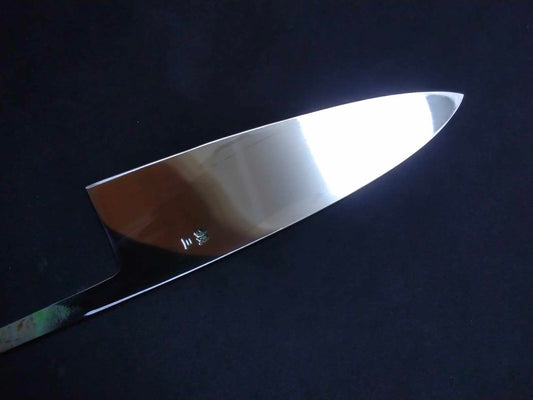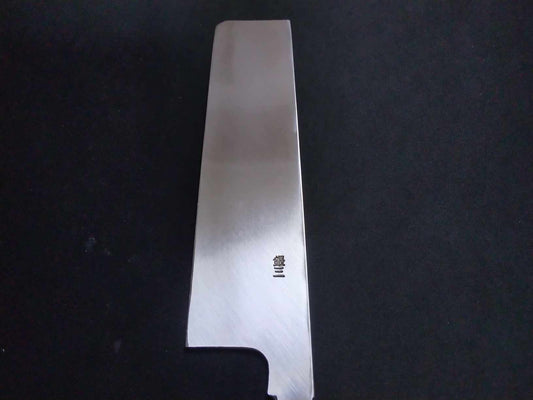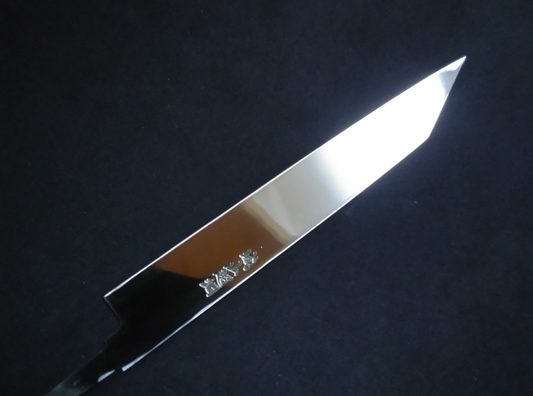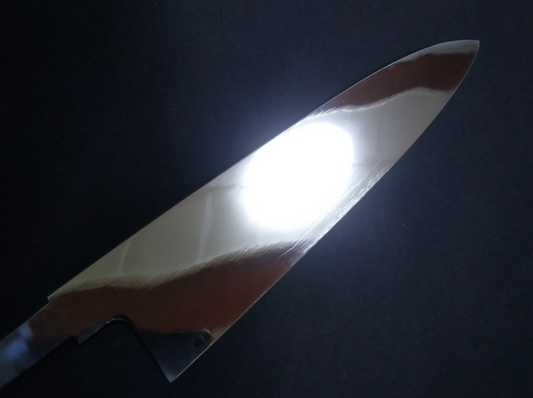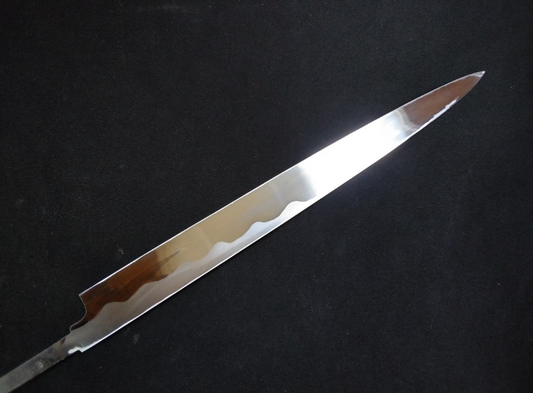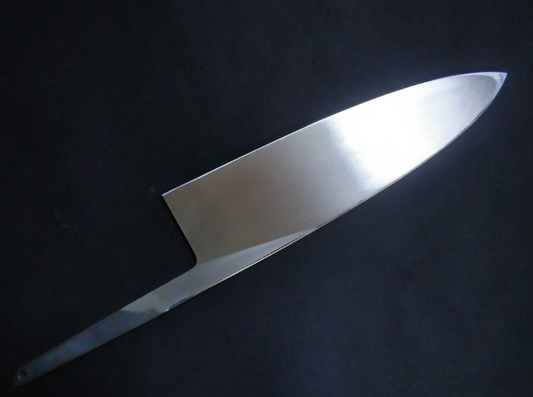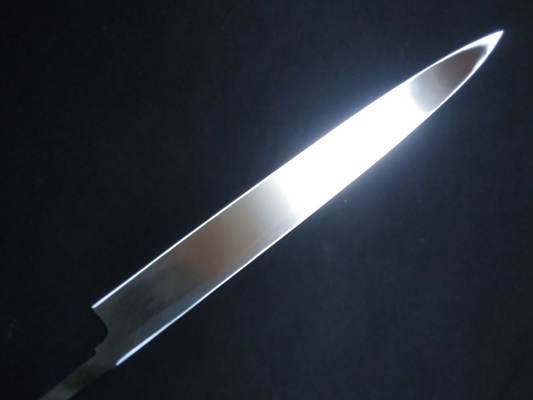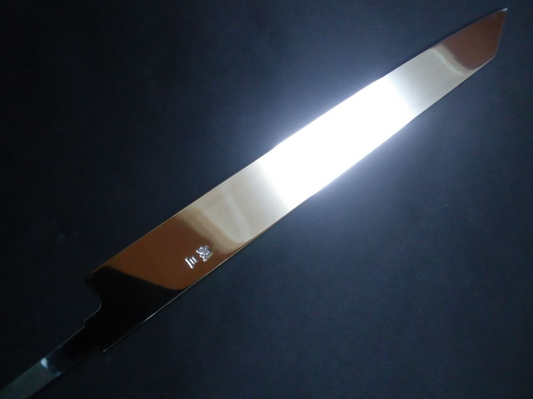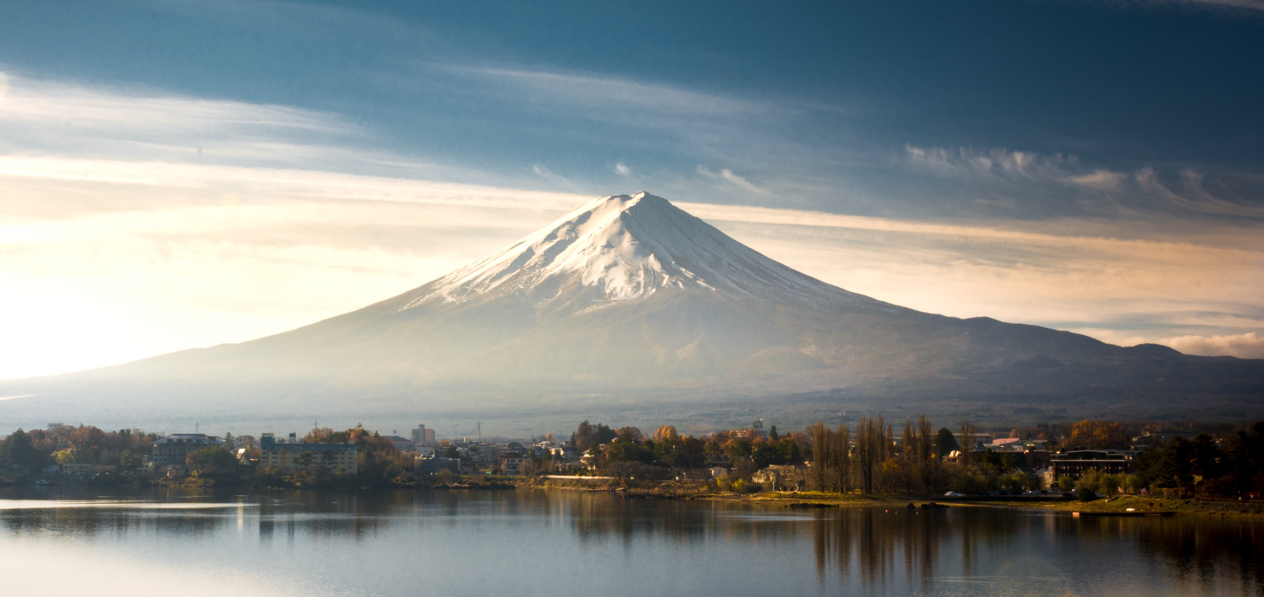
-
Shogo Yamatsuka
-
In Sakai, Japan — the heart of 600 years of blade-making — one craftsman stands apart. Shogo Yamatsuka, a rare master of Ginsan steel, blends the forging wisdom of his father with a relentless drive to innovate. Every KIREAJI Ginsan knife he creates is shaped entirely by his own hands — a fusion of precision, beauty, and respect for the art.
Sakai Traditional Craftsman Collection: Shogo Yamatsuka
-
White Steel #2 Yanagiba 240mm-Kido Finishing
Regular price $270.00 CADRegular priceUnit price / per -
White Steel #2 Yanagiba 270mm-Kido Finishing
Regular price $310.00 CADRegular priceUnit price / per -
Ginsan Santoku 180mm-Kido Finishing
Regular price $320.00 CADRegular priceUnit price / per$0.00 CADSale price $320.00 CAD -
White Steel #2 Damascus Deba 150mm-Mirror Polished Blur Finish
Regular price $346.00 CADRegular priceUnit price / per$0.00 CADSale price $346.00 CADSold out -
White Steel #2 Takohiki 270mm-Kido Finishing
Regular price $350.00 CADRegular priceUnit price / per -
White Steel #1 Yanagiba 270mm-Kido Finishing
Regular price $380.00 CADRegular priceUnit price / per -
Ginsan Santoku 180mm-Mirror Polished(both sides)
Regular price $380.00 CADRegular priceUnit price / per$0.00 CADSale price $380.00 CAD -
Blue Steel #2 Yanagiba 270mm- Mirror Polished(one side)
Regular price $385.00 CADRegular priceUnit price / per$0.00 CADSale price $385.00 CADSold out -
Ginsan Deba 180mm -Mirror Polished(both sides)
Regular price $403.00 CADRegular priceUnit price / per$0.00 CADSale price $403.00 CADSold out -
Ginsan Usuba 210mm -Mirror Polished(one side)
Regular price $412.00 CADRegular priceUnit price / per$0.00 CADSale price $412.00 CADSold out -
Ginsan Yanagiba(Kiritsuke) 225mm -Mirror Polished(both sides)
Regular price $412.00 CADRegular priceUnit price / per$0.00 CADSale price $412.00 CADSold out -
Ginsan Gyuto 210mm -Mirror Polished(both sides)
Regular price $430.00 CADRegular priceUnit price / per$0.00 CADSale price $430.00 CAD -
Blue Steel #2 Yanagiba 300mm -Mirror Polished(both sides)
Regular price $460.00 CADRegular priceUnit price / per$460.00 CADSale price $460.00 CADSold out -
White Steel #2 Damascus Deba 210mm-Mirror Polished Blur Finish
Regular price $460.00 CADRegular priceUnit price / per$0.00 CADSale price $460.00 CADSold out -
Blue Steel #2 Yanagiba 330mm -Mirror Polished(one side)
Regular price $460.00 CADRegular priceUnit price / per$460.00 CADSale price $460.00 CADSold out -
Ginsan Yanagiba(Kiritsuke) 270mm -Mirror Polished(both sides)
Regular price $480.00 CADRegular priceUnit price / per$0.00 CADSale price $480.00 CAD
Shogo Yamatsuka: Master of Ginsan and Beyond
-

The Path of a Bladesmith: Began Apprenticeship in 1973
Shogo Yamatsuka began his career as a bladesmith in 1973, training under his father, a blacksmith from Sakai. His father used the mark “Yuzan” on his blades, though it is unclear whether this was his given name or a professional alias. Since then, Yamatsuka has honed his skills in working with a wide range of steels, including White Steel, Blue Steel, and the rare forgeable stainless steel known as Ginsan.
-
Official Recognition
In 2012, Yamatsuka was formally recognized as a Traditional Craftsman (Dentō Kōgeishi) in Sakai’s blacksmithing community, acknowledging his exceptional forging skills
-
Specialization in Ginsan Steel
As one of Japan’s rare masters of Ginsan steel—a unique stainless alloy that must be forged like carbon steel—Yamatsuka exemplifies both tradition and precision
-
Guiding Motto
His guiding principle is “Work never betrays you”, a reflection of his steadfast dedication and pride in craftsmanship
KIREAJI's Three Promises to You
-

1. Forged in the Legacy of Sakai
From Sakai City—Japan’s renowned birthplace of professional kitchen knives—each blade is crafted by master artisans with over six centuries of tradition. Perfectly balanced, enduringly sharp, and exquisitely finished, every cut carries the soul of true craftsmanship.
-

2. Thoughtful Care for Everyday Use
Every knife includes a hand-fitted magnolia saya for safe storage. Upon request, we offer a complimentary Honbazuke final hand sharpening—giving you a precise, ready-to-use edge from day one.
-

3. A Partnership for a Lifetime
A KIREAJI knife is more than a tool—it is a lifelong companion. With our bespoke paid aftercare services, we preserve its edge and beauty, ensuring it remains as precise and dependable as the day it first met your hand.
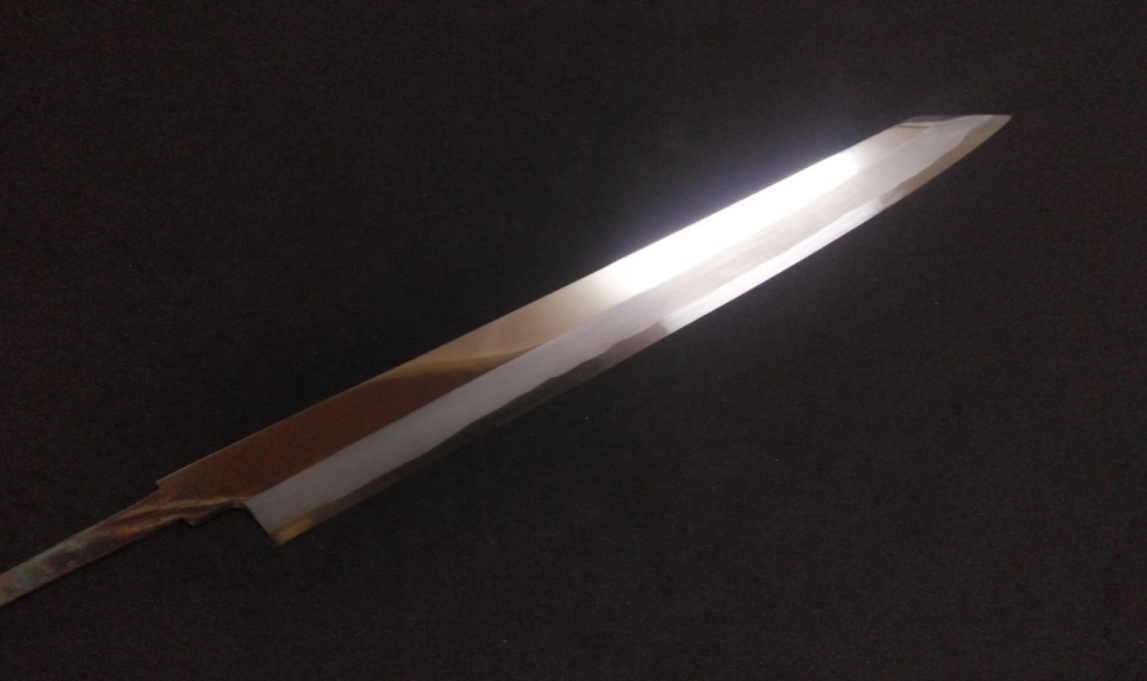
Why Many Product Photos Show Only the Blade
At KIREAJI, every knife is made to order in Sakai, Japan. Photos show the blade before the handle is attached, allowing artisans to perfect the balance and edge for your specific order. Your knife arrives fully finished — tailored just for you.

Global Delivery from Sakai
Across the world, discerning cooks seek authentic Japanese knives from Sakai — Japan’s legendary knife-making city with over 600 years of tradition.
At KIREAJI, we work alongside master artisans in Sakai to fulfill that desire, shipping genuine handcrafted knives directly from the workshop to kitchens worldwide.
Shogo Yamatsuka: Master of Ginsan and Beyond
-
For over 600 years, Sakai has stood at the heart of Japanese knife-making.
Among its distinguished artisans, Shogo Yamatsuka is recognized worldwide as one of the few blacksmiths who have truly mastered Ginsan steel—a rare stainless steel that behaves like carbon steel under the hammer.
While Yamatsuka forges a wide range of steels, including White #1, White #2, and Blue #2, it is his exceptional command of Ginsan that has earned him deep respect among professional chefs. His knives are trusted not only for their sharpness, but for their consistency, balance, and quiet authority in the hand—qualities that define a blade meant for lifelong use. -

Tradition Meets Relentless Innovation
Rooted firmly in Sakai’s centuries-old traditions, Yamatsuka continuously refines his craft through experimentation and relentless discipline. For him, mastery is not repetition—it is responsibility.
He honors inherited techniques while pushing them forward, refining materials and forging methods so that tradition remains alive, relevant, and uncompromising in modern kitchens.
Every blade he forges carries this philosophy: respect for the past, and an uncompromising commitment to what comes next. -
Why Ginsan Is So Difficult to Forge
-
Ginsan is unlike typical stainless steels. Its carbon content allows it to achieve sharpness and hardness comparable to high-carbon steels, while still offering excellent rust resistance. This rare balance, however, makes it one of the most demanding materials to forge.
-
• Precise temperature control is essential—overheating or underheating can ruin the blade.
• Its hardness and toughness make forging extremely labor-intensive.
• Only a limited number of blacksmiths in Japan possess the expertise to bring out its full performance.
This is precisely why true Ginsan mastery is so rare—and why Yamatsuka’s work stands apart. -

The Signature of a Yamatsuka Knife
Yamatsuka’s knives—especially those forged from Ginsan—are highly regarded for their rust resistance, refined and lasting edge, and a balance that feels alive during use.
For professionals, these blades represent a rare harmony of tradition, durability, and precision performance—tools designed not for display, but for daily trust in demanding kitchens. -
Why Chefs Treasure Them
Owning a Yamatsuka knife is not simply acquiring a tool—it is embracing a living tradition. Each cut reflects over six centuries of Sakai craftsmanship, combined with Yamatsuka’s forward-looking innovation.
For chefs and dedicated home cooks alike, these knives become lifelong companions—blades that grow with their users, elevating cooking from routine work into a disciplined art. -
Discover What Makes Ginsan Exceptional
Ginsan’s distinctive balance of sharpness and durability is the reason only a handful of master smiths can forge it successfully.
Understanding the precision, discipline, and experience required to work this steel reveals why it remains one of the most respected symbols of Japanese knife craftsmanship.
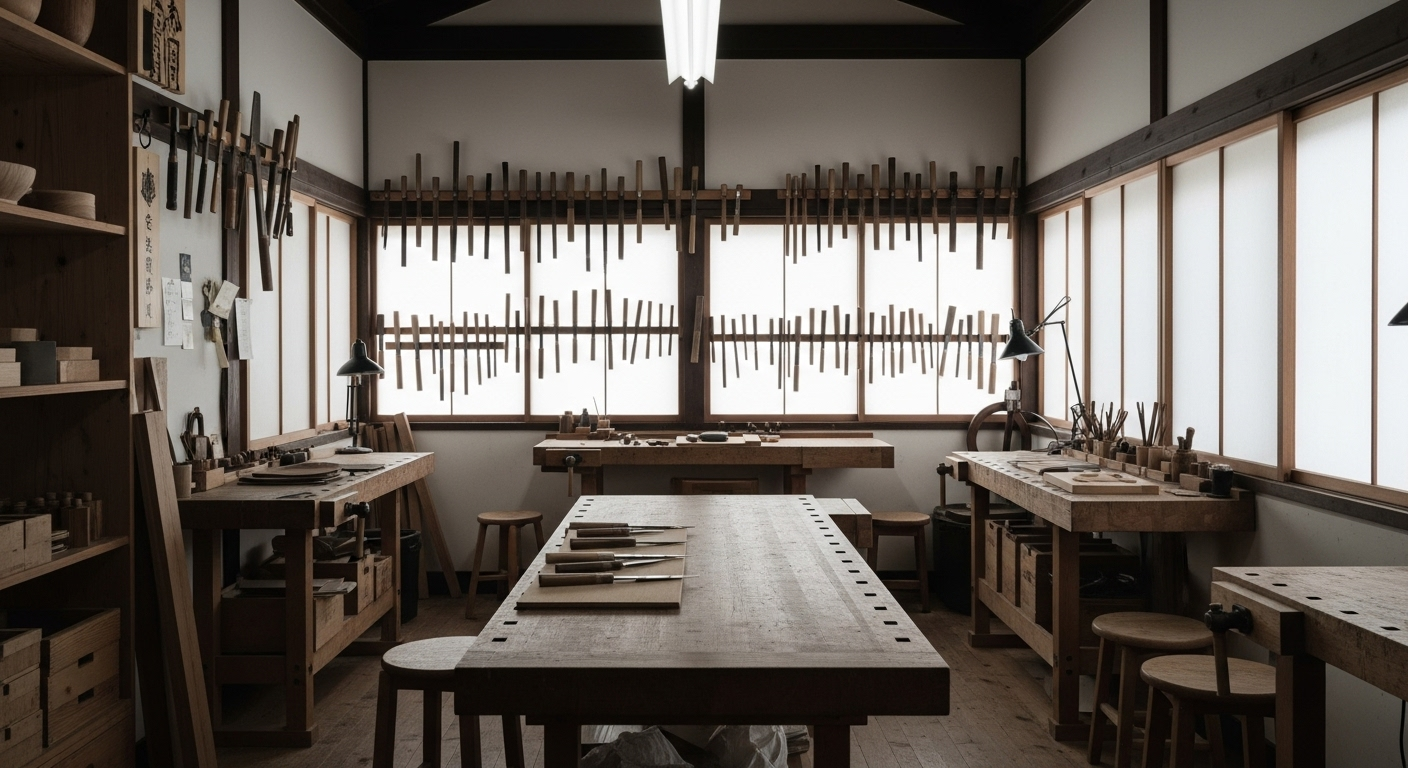

The Master Craftsmen of Sakai Uchihamono
In Sakai, centuries-old techniques are carried forward by government-certified Traditional Craftsmen. Each knife is not just a tool but a living symbol of tradition, precision, and spirit—kept alive through their hands.
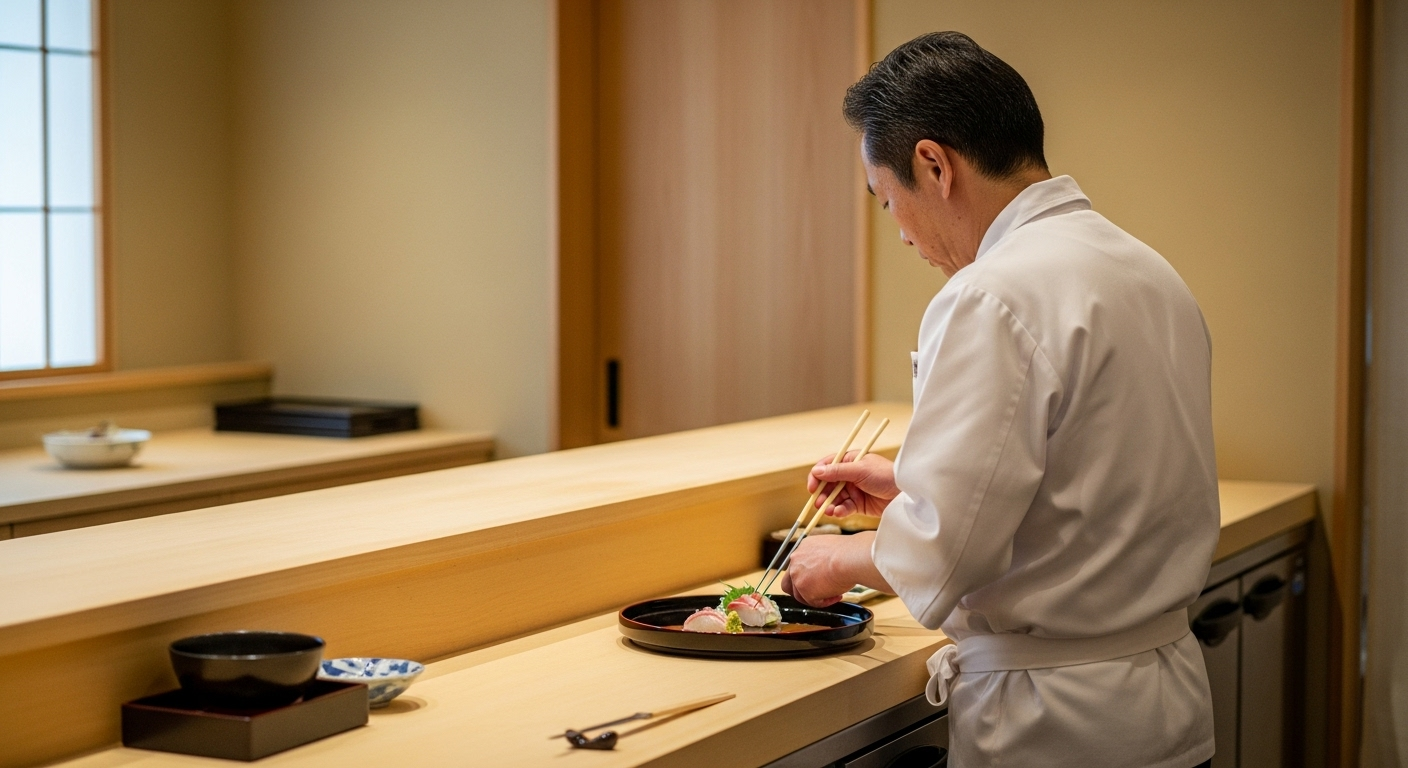
Why Do 98% of Japan’s Chefs Trust Sakai Knives?
For over 600 years, Sakai has perfected a unique craft where each stage—forge, sharpen, finish—is mastered by specialists. This tradition makes Sakai the birthplace of Japan’s most trusted knives.
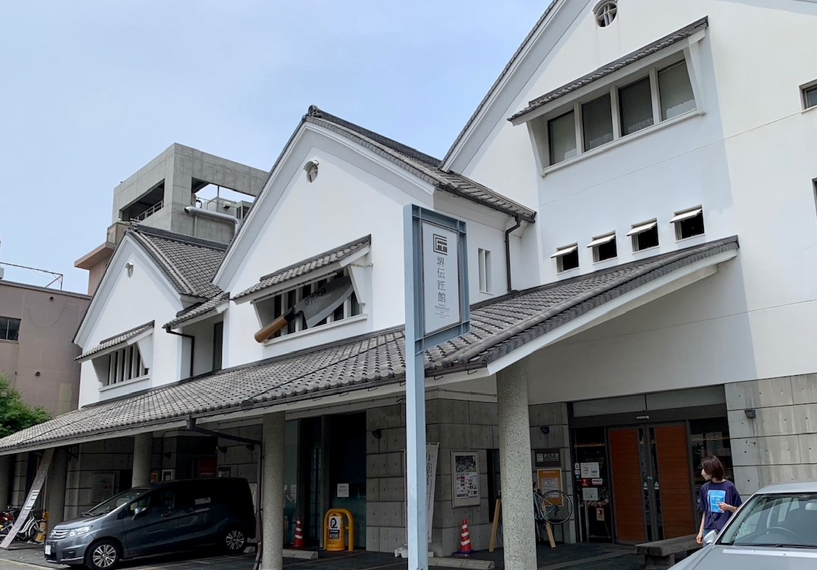
The 98% Statistic: More Than a Number
According to the Sakai Tourism Bureau, “98% of Japanese chefs use Sakai knives.” This figure isn’t just a claim—it reflects the deep trust chefs place in Sakai’s centuries-old craftsmanship.

Sakai’s Dwindling Masters: A Legacy at Risk
Once the heart of Japan’s finest cutlery, Sakai now has only a handful of blacksmiths left. With rising competition and fading interest among the young, new markets and fresh apprentices are vital to survival. Supporting these craftsmen means safeguarding a 600-year cultural legacy.

Yuzan
Yuzan, father of Shogo Yamatsuka, was a master craftsman who devoted his life to Mizuyaki Honyaki knives. This collection features extremely rare pieces he forged 40–50 years ago—treasures seldom found on the market today.
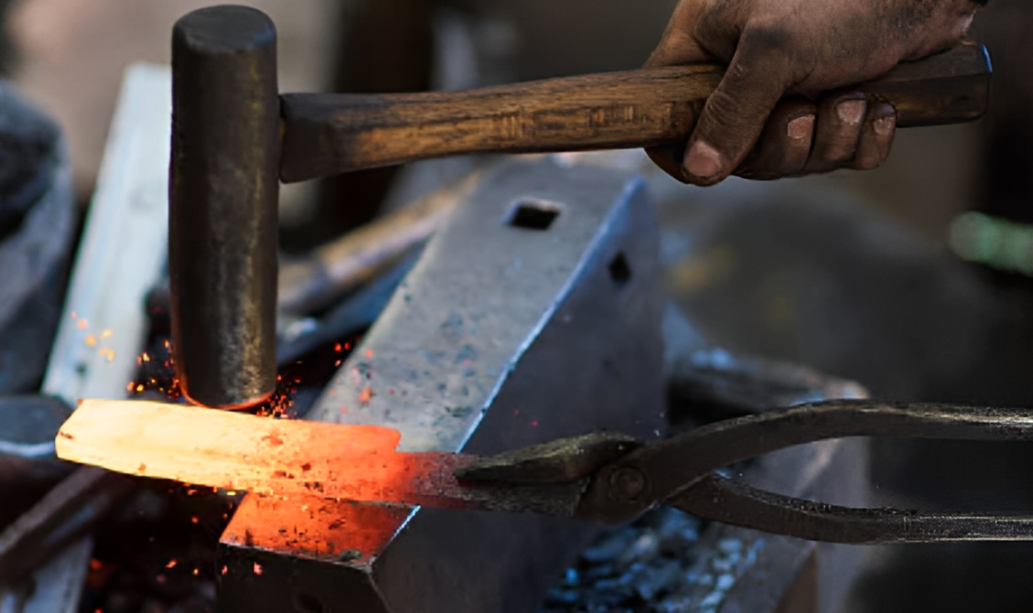
The Soul of Craftsmanship
-
Work Never Betrays — The Voice of Steel and the Spirit of a Craftsman
No matter how steep the path may seem, I believe with all my heart that true effort always takes form.
Each time I gaze into the forge’s fire and bring my hammer down upon the steel, I am reminded of this truth. -
Blade-making is not simply my profession—it is the rhythm of my life. There are days when the steel cracks, or the form I seek refuses to appear. Yet, by refusing to surrender, by striking again and again, there comes a moment when the steel begins to whisper, guiding my hands to its destined shape.
-
Work never betrays us. The sweat, the hours, the struggles—they all become visible in the blade’s edge, in its feel, in its life. This is the pride of a craftsman: to be better tomorrow than today, and better still the day after.
-
With this belief in my heart, I light the forge once more today. My hope is that those who take my knives into their hands will not only sense their sharpness, but also feel the spirit of dedication that gave them form—a spirit that connects craftsman and chef across time and distance.
How Japanese Knives Are Made: The Sakai Tradition
VIDEO PROVIDED: JAPAN TRADITIONAL CRAFTS AOYAMA SQUARE (YOUTUBE)
-
Sakai Forged Blades — Six Centuries of Unrivaled Craftsmanship
Loved by chefs around the world and trusted by 98% of Japan’s top culinary professionals, Sakai knives are more than tools—they are the living legacy of over 600 years of master craftsmanship.
-
At KIREAJI, we work directly with the Shiroyama Knife Workshop in Sakai, Japan, ensuring every blade is hand-forged, finished to perfection, and shipped straight from the workshop to kitchens across the globe. No middlemen. No mass production. Only authentic, artisan-made knives, crafted to elevate your cooking for a lifetime.


